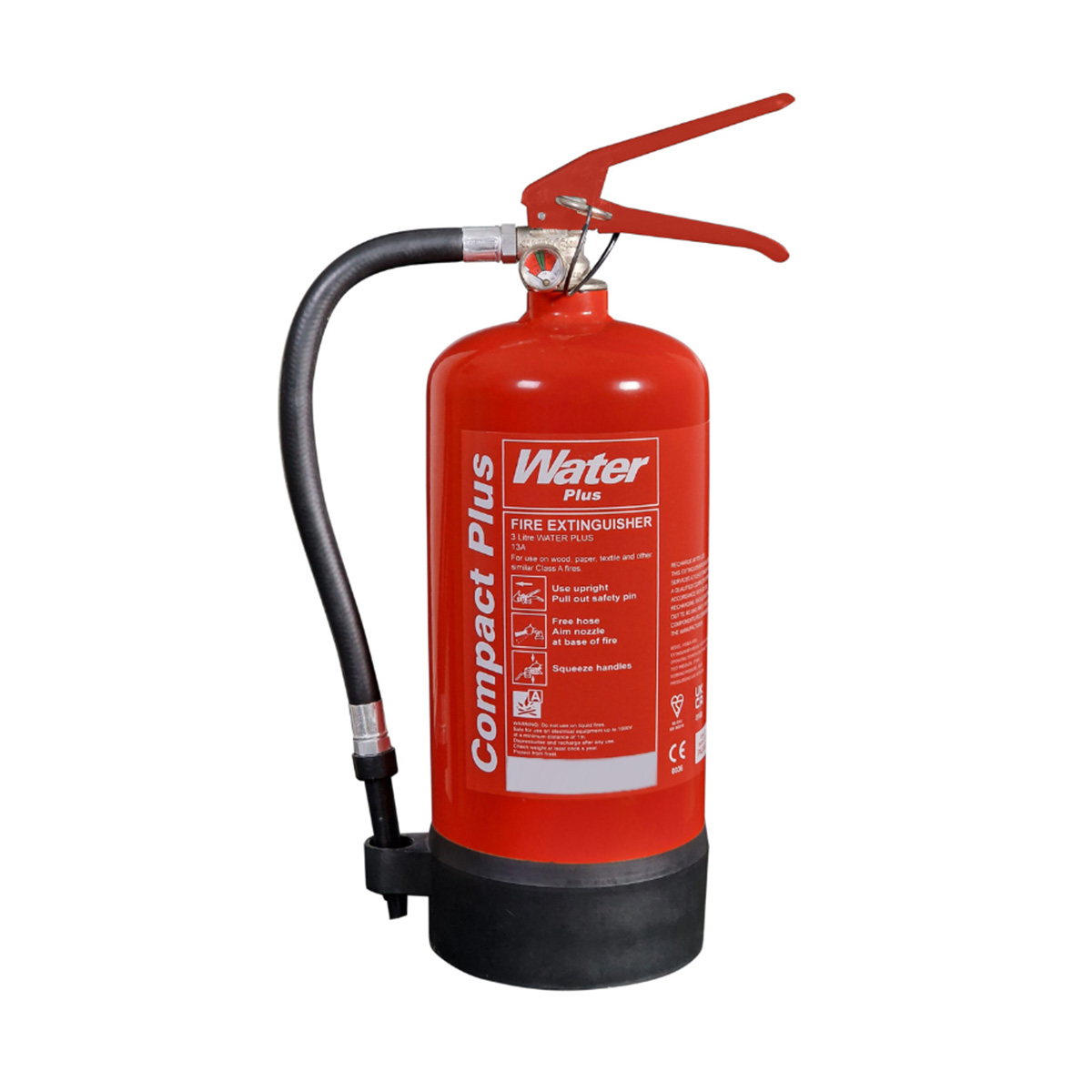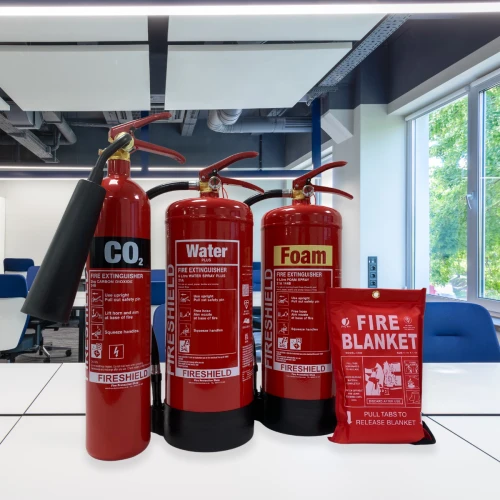Fire Protection Shop specialise in the supply of high-quality fire extinguishers. There are many different classifications of fire and so our products include a variety of different extinguisher types. For example, we offer water or foam fire extinguishers for solid combustibles and carbon dioxide fire extinguishers for flammable liquid or electrical fires. Each extinguishing agent comes with its benefits. Typically, water extinguishers are cheaper, produce a cooling effect and prevent reignition once the fire has been extinguished. Carbon dioxide extinguishers are clean agents, they leave no residue, are suitable for electrical fires and are often used on liquid fires which include petrol, oil or other solvents.
In addition to our extinguishers, we offer a range of fire safety products to both domestic and commercial premises. This includes the supply of fire blankets, extinguisher stands, smoke alarms, first aid kits and much more. Our entire range is sourced from reputable brand manufacturers at competitive prices. Also, all of our products carry a full warranty and guarantee and are supplied with relevant fixings where applicable.
So, for fire extinguishers, alarms and all your other fire safety needs, trust Fire Protection Shop to give you the quality, expertise and service you require.







 Book a service
Book a service







